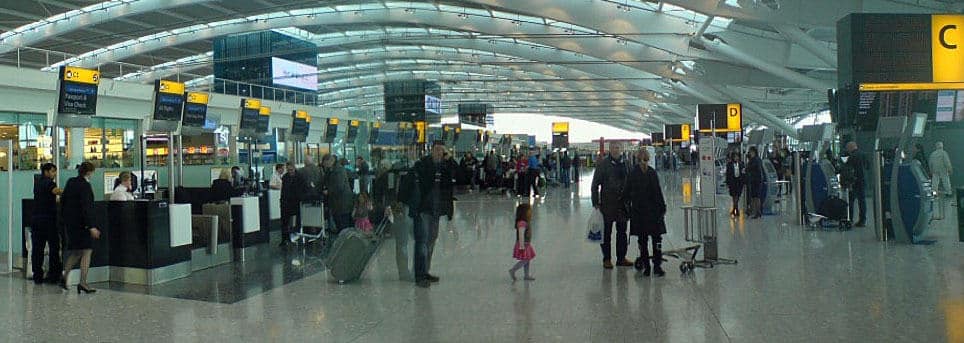The Challenge
By 2018 all airports will need to be compliant with the new standards for Hold Baggage Screening. This new standard, ECAC Std 3, follows on from Std 2, which was implemented in 2012 and requires all existing screening equipment to be replaced. Revisions from the security authorities require regular updating and replacing of software and equipment at airports, in order to comply with the strict standards.
The programme to ensure that all equipment complies with ECAC Std 3 has just started in Terminal 5 at Heathrow. This will run over two years, and is due to be completed in 2018.
29 scanning machines need to be replaced in Terminal 5 alone; by doing so, the operation at the terminal will be improved and protected. The stakeholders would like that the terminal gains more capacity during the process.
The Solution
AiQ Consulting are providing benchmarking services during the Hold Baggage Screening changes. Our team are analysing the performance of the existing set up to measure the performance to be equal or better than before when Std 3 is fully implemented. This includes historical analysis and throughput trials, testing bags through system as the project progresses.
This benchmarking completely immerses the test bags through the system, provides a thorough trial and analysis of each new machine. Employed by Mace, the project managers, the AiQ team has instructed CHS Services to provide the physical element of the benchmarking, which then provides us with the data that we process into a format understood by both the project managers and the stakeholders – British Airways.
The Benefit
Our unrivaled and experienced knowledge in baggage processes, data analysis and simulation allows our team to define the best sequence to replace the screening equipment. This allows us to mitigate any issues concerning performance of the system. We will also use the data to inform on the phasing of the asset replacement programme.
This in itself is a challenge. The programme can be affected by other projects undertaking asset replacement, such as Early Bag Stores or Transfer Input that can impact on phasing.
We are providing our unique skills in stakeholder management, communicating both data and phasing requirements with stakeholder, BA. To ensure that BA are always in the best position during the project, we may have to adjust phasing to suit their needs, whether that is for commercial or seasonal reasons. There is a real need to keep the stakeholder informed and understanding of the requirements in terms of phasing, as well as the performance on commercial level.
- Complex programme and project management
- Efficient stakeholder management
- Increased capacity and flexibility
- Resource utilisation increased
- Improved passenger customer service and airport experience
- Use of expert simulation and modelling technology

